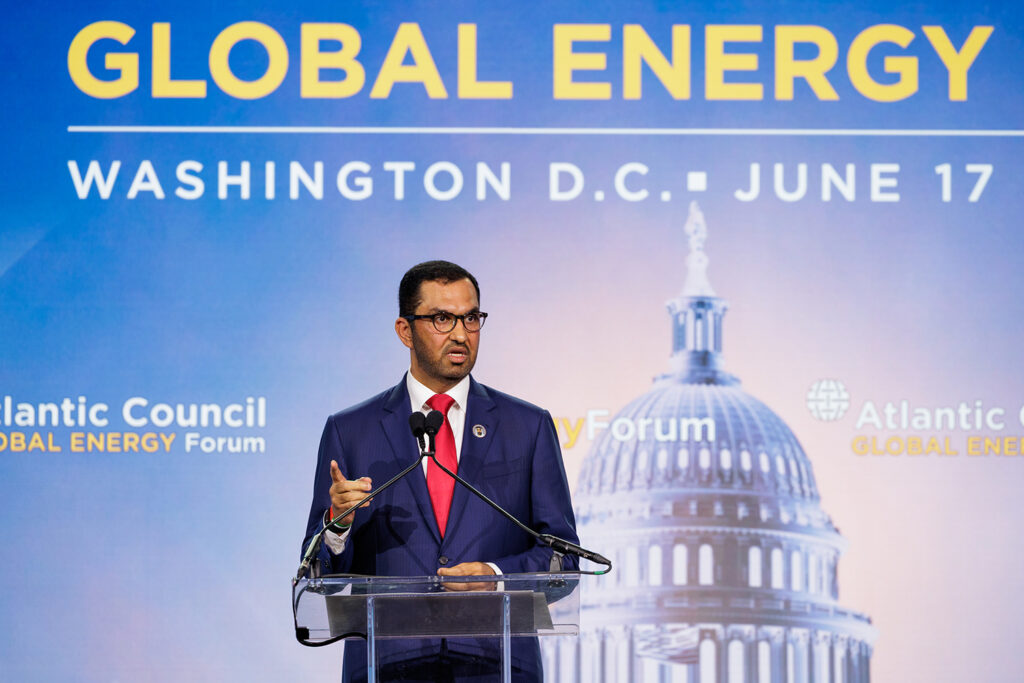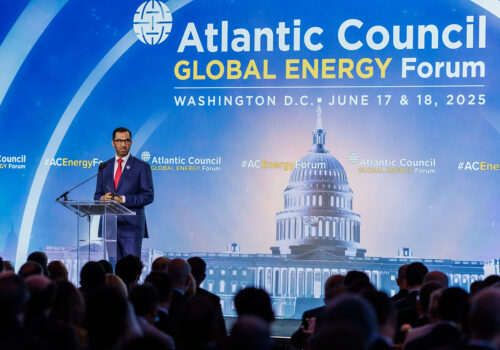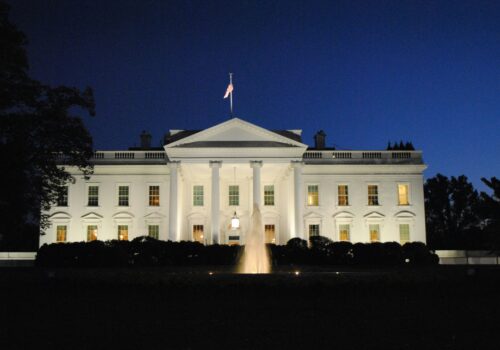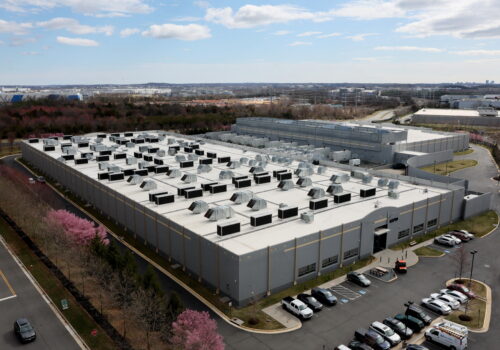Watch the full Global Energy Forum
For Sultan Al Jaber, the United Arab Emirates’ minister of industry and advanced technology, the race to establish artificial-intelligence (AI) supremacy is “essentially an energy play.”
Al Jaber, who is also the head of national oil company ADNOC and the renewable energy company Masdar, spoke at the opening of the 2025 Global Energy Forum, hosted by the Atlantic Council’s Global Energy Center.
“The race for AI is not just about code . . . it’s about gigawatts,” he said, explaining that one query on ChatGPT uses ten times as much energy as a Google search.
“Over the next five years, the US alone will need anywhere between 50 and 150 gigawatts of new installed capacity,” Al Jaber noted. “Meeting this demand is not just a technical challenge,” but a “once-in-a-generation” opportunity, he added.
At the same time, Al Jaber noted that AI can help “unlock its own energy challenge,” by helping energy grids optimize their efficiency and power generation.
Below are more highlights from his remarks, which also touched upon energy policy reforms and the widening conflict across the Middle East.
An engine of peace
- Speaking as the conflict between Israel and Iran continues to escalate, Al Jaber called upon “all parties” to “show restraint.” He also pushed for “peace over provocation, calm over confrontation, and progress through partnership—and only partnership.”
- “Moments like these remind us that energy is not just the engine of progress,” he said. “It is a cornerstone of peace, stability, and ensuring prosperity.”
Shift into hyperdrive
- Meeting AI’s energy demand, Al Jaber argued, will require a “systemwide shift” that brings the energy, technology, finance, and policy sectors “in sync.”
- It will also require an effort to “hyperscale” energy, by creating a “reliable base load” of energy sources such as gas, renewables backed by energy storage, and nuclear breakthroughs, Al Jaber said.
- He added that such an effort would also require placing a “pragmatic pause” on the early retirement of existing power plants, to help ensure constant supply while energy leaders work to bring nuclear back into the mainstream.
Power to the people
- “Power generation is only half of the story, though,” Al Jaber said. “Getting the power to the end user is the other half, and . . . it’s the more complex part of that equation.”
- He added that solving the equation—updating the energy grid in the United States—would require “an investment surge” of $300 billion annually. “You can’t run tomorrow’s technology on yesterday’s grid,” he added.
- Al Jaber announced that ADNOC would be increasing its US energy investments, issued through ADNOC’s XRG arm, from $70 billion to $440 billion over the next ten years. “The United States is not just a priority. It is more of an investment imperative,” he said.
- But beyond investment, policy can also help, he added, pointing to measures that de-risk capital investments and fast-track permitting.
Katherine Golden is an associate director on the Atlantic Council’s editorial team.
Editor’s note: ADNOC and XRG are sponsors of the Atlantic Council’s Global Energy Forum. More information on Forum sponsors can be found here.
Watch the event
Further reading
Tue, Jun 17, 2025
The AI race ‘is not just about code,’ it’s ‘about gigawatts,’ says the UAE’s Sultan Al Jaber
Transcript By
At the 2025 Global Energy Forum, Al Jaber spoke about the need to "hyperscale energy" and update energy grids across the world.
Mon, Jun 16, 2025
US global leadership in the age of electricity
EnergySource By Robert F. Ichord, Jr.
Amid shifting geopolitics and the emerging "age of electricity," the United States has an opportunity to assert global leadership in energy and security. Through foreign policy, the Trump administration can leverage US strengths in natural gas, nuclear power, and emerging energy technologies to engage allies in building a secure and resilient global electricity system.
Wed, May 21, 2025
Replace the Inflation Reduction Act with FUEL-AI
EnergySource By Joseph Webster
To compete in the global AI race, the United States must dramatically expand its power supply. Replacing the Inflation Reduction Act with the FUEL-AI Act would reorient energy policy toward national security, fast-tracking domestic energy production and infrastructure to power America’s AI future.
Image: Sultan Al Jaber speaks at the Atlantic Council's Global Energy Forum on June 17, 2025 in Washington, DC.



